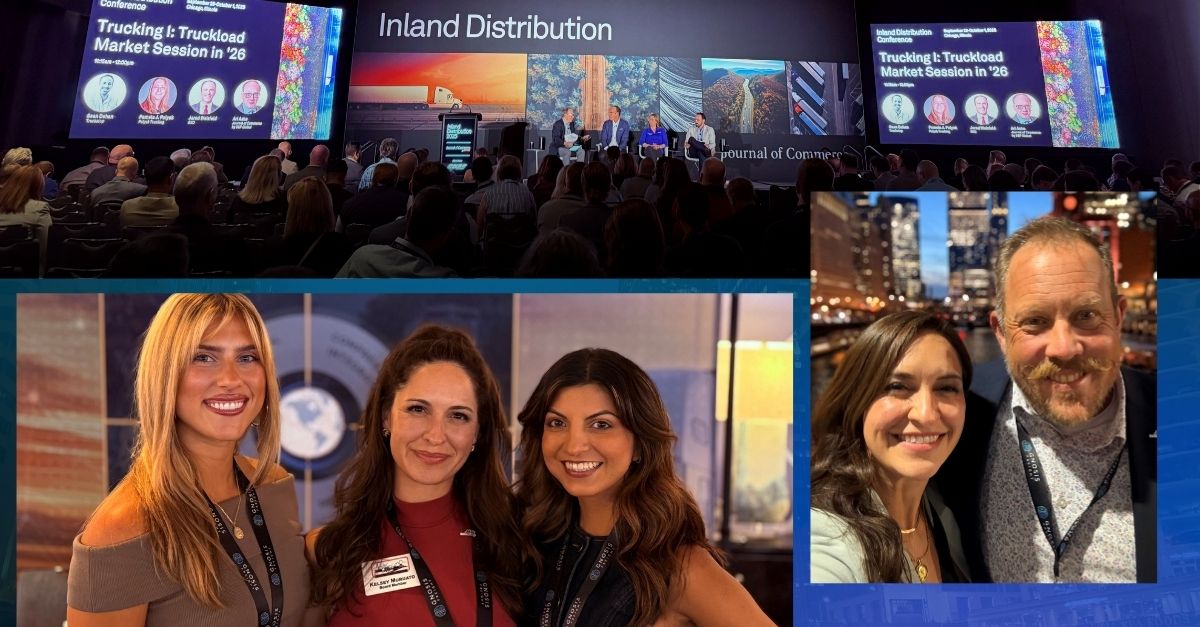Last week, the Mark-it Express team attended the Journal of Commerce Inland Distribution Conference in Chicago, where industry leaders gathered to discuss the state of North American surface transportation. What we heard confirmed what many in the industry already know but few want to say out loud: the drayage market is at an inflection point, and shippers need to rethink how they select their carrier partners.
Imports Are Flatlining
Conference sessions made one thing abundantly clear—the reality is that imports are flatlining. This is due two two primary factors – a great deal of cargo was frontloaded to try to arrive ahead of the moving target of tariff rates. Secondly, the next deadline for reaching a more permanent deal with China comes next month in November, and despite factories returning from the Golden Week holiday, the placing and shipping of orders will remain sidelined absent a deal or a definitive extension.
The Reliability Question No One Wants to Answer
Throughout the conference, we heard a persistent refrain from beneficial cargo owners: “We’re looking for reliable partners.” It’s one thing to use the term, it’s another thing to define it. So we followed up and asked what that meant exactly.
Small fleets, consisting of five or more power units, dominate the overall number of companies in business, but they do not constitute the majority of trucks in service. These small carriers operate on razor-thin margins.
As our Director of Business Development, Matt Belanus, bluntly puts it, “Everything works fine – until it doesn’t.”
Budget carriers operating on razor-thin margins in today’s environment are on borrowed time. One hiccup, such as a client bankruptcy, a major accident, or some other event in the normal course of business, means they’re shuttering. Budget operators make choices for their financial solvency, not the shipper. So, if a container goes missing during a street pick-up, a company shuts down over a weekend with pre-pulled freight in their yard, or when a shipment misses a critical delivery window because the carrier cannot secure a chassis—these aren’t anomalies. They’re predictable outcomes of choosing price over partnership. For shippers who have containers locked up or cannot find a carrier to pick up a large number of boxes before the free time expires, the storage and delay costs will be exponentially higher than the difference between selecting a borderline carrier and a stable carrier.
The Partnership Paradox
At one panel discussion, we watched a beneficial cargo owner explain how they “support their carriers” and understand their business needs, while also describing how they implement dynamic fuel surcharges specifically designed to capture the cost savings carriers achieve through aerodynamic improvements and operational efficiency.
That’s not a partnership. That’s rate engineering.
The contradiction is everywhere. Shippers say they want reliability, longevity, and true partnerships with their drayage providers. Then they award business to the lowest bidder operating out of a truck stop parking lot.
Mark-it Express challenges shippers to do their homework before selecting a drayage carrier.
The rubber meets the road when it’s time to audit someone’s systems, or confirm they’ve got the locked / monitored / gated yard they claim to have in an online profile, or have the local subject matter experts who know how to react when there are problems at the rail, the pickup, or delivery location.
The Asset-Based Advantage
We recently had a conversation with a freight forwarder that made their position clear: “Unless you have assets, we don’t want to talk with you.”
That’s no longer an outlier position. It’s increasingly the default one.
Why? Because asset-based carriers with their own equipment, secure yards, and established infrastructure represent something that can’t be easily replaced: predictability. When you know your carrier will still be in business six months from now—and that’s literally become a selling point in this market—you’re operating from a position of strength.
Mark-it’s owner is third generation in the trucking industry. That kind of pedigree carries weight.
Time and again, we’re hearing it, we’re asked it, and we can answer it: “Yes, Mark-it Express is a privately held, asset-based drayage company with our own power units and owned chassis.”
The Bottom Line
The takeaway as people left Chicago after three days of meetings and sessions is that whether it be tariff driven or the overall market, the mood is one of uncertainty. This uncertainty means that the serious shippers are going to need to make a decision at the crossroads they’re at today – do they want a consolidated, quality, reliable drayage industry, or do they want to inject unnecessary variables and risk into their supply chain equations? The trend will continue—it’s whether companies will adapt their carrier selection strategy before experiencing the consequences of not adapting.
At Mark-it Express, we’ve been focused on financial stability, asset-based operations, and transparent communication precisely because we saw this market evolution coming. It’s something that is brought forth in conversations with every BCO, every NVOCC, every ocean carrier and every brokerage. People want to know that the carrier they contract with today will still be around in six months, a year, or well into the future.
We’re not interested in being the cheapest option. We’re interested in being the carrier you can count on when it matters most. We’ll be at the Virginia Maritime Conference next week and at the South Carolina Ports event after that. There are plenty of opportunities to talk to Matt Belanus and Kelsey Muruato at either of those events, or you can send them an email, and they’ll get back to you promptly.

